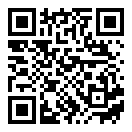An Analysis and Examination of Written Sources of Jewish Law and Sharia
 / Assistant Professor, Department of Religions and Mysticism, Imam Khomeini Educational and Research Institute / mr.asadi@iki.ac.ir
/ Assistant Professor, Department of Religions and Mysticism, Imam Khomeini Educational and Research Institute / mr.asadi@iki.ac.irچکیده و کلیدواژه فارسی (Persian)
- کتاب مقدس (2002م). لندن: ایلام.
- ابنشهید ثانى، حسن بن زینالدین (1390). معالم الدین و ملاذ المجتهدین. قم: دفتر انتشارات اسلامی.
- ابنمنظور، محمد بن مکرم (1414ق). لسان العرب. بیروت: دار صادر.
- سالتز، آدین اشتاین (1393). سیری در تلمود. ترجمة باقر طالبی دارابی. قم: دانشگاه ادیان و مذاهب.
- توفیقی، حسین (1389). آشنایی با ادیان بزرگ. تهران: سمت.
- هاشمی شاهرودی، سیدمحمود (1423ق). موسوعة الفقه الإسلامی طبقاً لمذهب اهل البیت. جمعی از پژوهشگران زیر نظر آیتالله شاهرودی. قم: مؤسسة دایرةالمعارف فقه اسلامی بر مذهب اهلبیت.
- زرینکوب، عبدالحسین (1369). در قلمرو وجدان: سیری در عقاید ادیان و اساطیر. تهران: علمی.
- سلیمانی، حسین (1384). چشمانداز حقوق یهودی. در: عدالت کیفری در آیین یهود. قم: مرکز مطالعات و تحقیقات ادیان و مذاهب.
- طوسى، محمد بن حسن (1417ق). العدة فی اصول الفقه. قم: محمدتقی علاقبندیان.
- فلدمن، دیوید ام. (1384). ساختار حقوق یهود در عدالت کیفری یهود. در: عدالت کیفری در آیین یهود. قم: مرکز مطالعات و تحقیقات ادیان و مذاهب.
- کهن، آبراهام (1350). گنجینهای از تلمود. ترجمة امیرفریدون گرگانی و امیرحسین صدریپور. تهران: یهودا حی.
- مکارم شیرازی، ناصر (1385). دایرةالمعارف فقه مقارن. با همکاری جمعی از اساتید و محققان حوزة علمیة قم. قم: مدرسة الامام علیبنابیطالب.
- موسوی خمینی، سیدروحالله (1389). صحیفة امام. تهران: مؤسسة تنظیم و نشر آثار امام خمینی.
- موسوی خمینی، سیدروحالله (1426ق). الإجتهاد و التقلید. تهران: مؤسسة تنظیم و نشر آثار امام خمینی.
- هرتس، جوزف هرمن (2007م). خلاصة الفکر الیهودی عبر العصور. ترجمة فرید یلوز. جبیل (لبنان): دار مکتبة بیبلیون.
- هینلز، جان راسل (1385). راهنمای ادیان زنده. ترجمة عبدالرحیم گواهی. قم: مرکز چاپ و نشر دفتر تبلیغات اسلامی حوزة علمیة قم.
- Holy Bible. (2002). London: Elam.
- Feldman, D. M. (2005). Jewish Legal Structure in Criminal Justice. In Criminal Justice in Judaism. Qom: Center for Religious Studies and Research.
- Hashemi Shahroudi, S. M. (2002). Encyclopedia of Islamic Jurisprudence According to the School of Ahl al-Bayt. Compiled by researchers under the supervision of Ayatollah Shahroudi. Qom: Islamic Jurisprudence Encyclopedia Foundation on the School of Ahl al-Bayt.
- Hertz, J. H. (2007). Jewish Thought Throughout the Ages. Translated by Farid Yeluz. Jbeil (Lebanon): Dar Maktabat Biblion.
- Hinnells, J. R. (2006). Guide to Living Religions. Translated by Abdul Rahim Gavahi. Qom: Center for Printing and Publishing of Islamic Propaganda Office of Qom Seminary.
- Ibn Manzur, M. b. M. (1993). Arabic Language. Beirut: Dar Sader.
- Ibn Shahid Thani, H. b. Z. (2011). Landmarks of Religion and Refuge of Jurists. Qom: Islamic Publications Office.
- Kohen, A. (1971). A Treasury of Talmud. Translated by Amir Fereydoun Gorgan and Amir Hussein Sadri Pour. Tehran: Yehuda Hai.
- Makarem Shirazi, N. (2006). Comparative Jurisprudence Encyclopedia. In collaboration with professors and researchers of Qom Seminary. Qom: Imam Ali ibn Abi Talib School.
- Mousavi Khomeini, R. (2005). Ijtihad and Taqlid. Tehran: Organization for Publishing and Organizing Imam Khomeini's Works.
- Mousavi Khomeini, R. (2010). Imam's Collection. Tehran: Organization for Publishing and Organizing Imam Khomeini's Works.
- Saltz, A. E. (2014). Journey Through the Talmud. Translated by Baqer Talebi Darabi. Qom: University of Religions and Denominations.
- Soleimani, H. (2005). Jewish Law Perspective. In Criminal Justice in Judaism. Qom: Center for Religious Studies and Research.
- Tavafi, H. (2010). Introduction to Major Religions. Tehran: Samt Publishing.
- Tusi, M. b. H. (1996). The Equipment for Jurisprudence Principles. Qom: Muhammad Taqi Alaqbandian.
- Zarrinkoub, A. H. (1990). In the Realm of Conscience: A Journey Through Religious Beliefs and Myths. Tehran: Scientific Publishers.
- Jacobs, Joseph & G. Hirsch, Emil (1906). PROSELYTE. in: Jewish Encyclopedia. V10. New York & London: Funk & Wagnalls cpmpany.
- Rabinowitz, Louis; Harvey, Warren (2007). Torah. In: Berenbaum, Michael; Skolnik, Fred, Encyclopedia Judaica. Vol.20 (2nd ed.) Detroit: Macmillan Reference.
- Scherman, Nosson (2001). Tanakh. Vol. I: The Torah (Stone ed.). New York: Mesorah Publications.
- Wald, Stephen G. (2007).Talmud. Encyclopedia Judaica. (2nd ed.) Michael Berenbaum. U S A: Macmillan Reference. Jerusalem: Keter Publishing House, Thomson Gale.
- https://www.britannica.com.
- https://www.sefaria.org/Avot_DeRabbi_Natan.
- https://www.sefaria.org/Bereshit_Rabbah.
- https://www.sefaria.org/Mishnah_Sanhedrin.
- https://www.sefaria.org/Pirkei_Avot.
- https://steinsaltz.org/bio.




